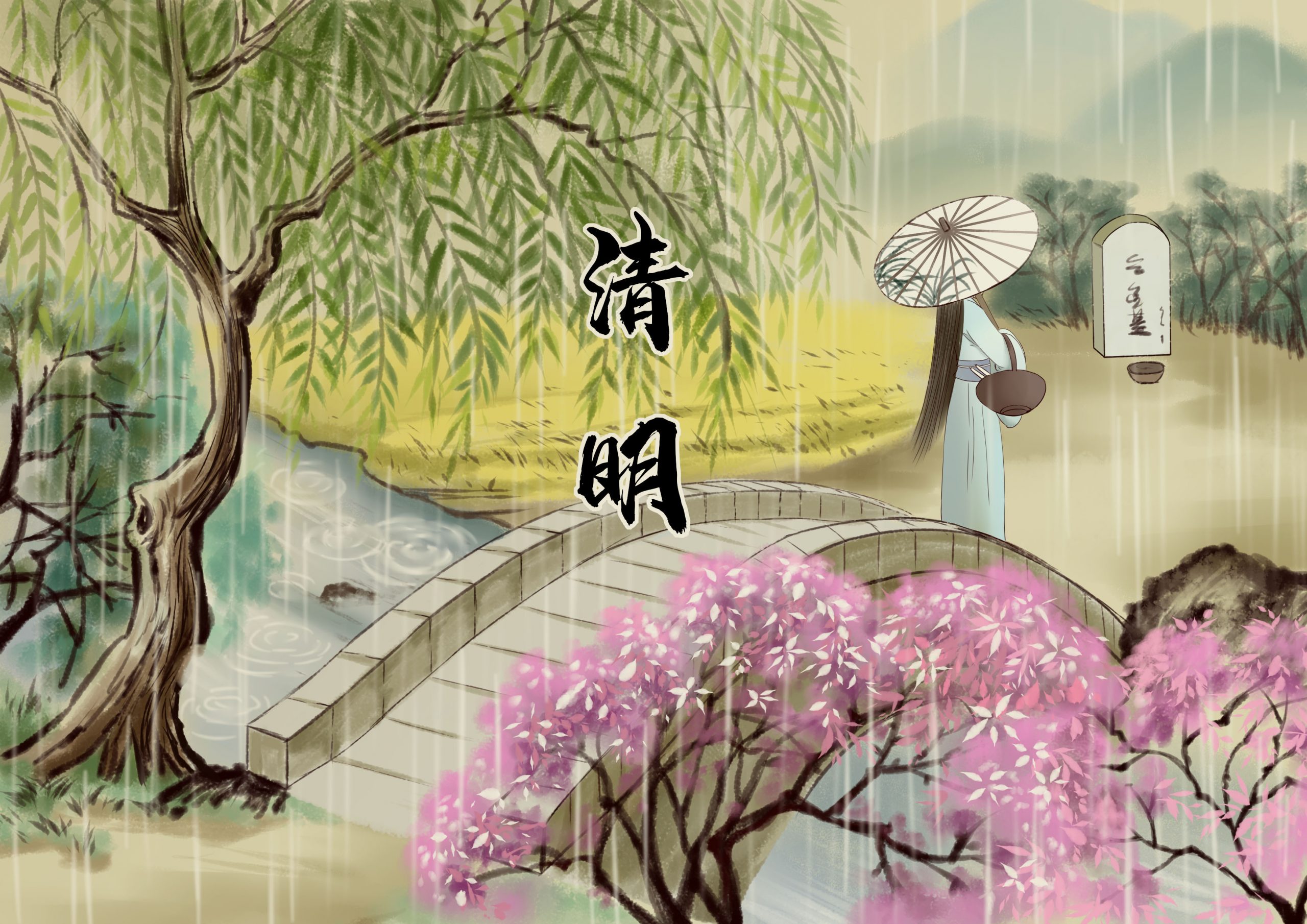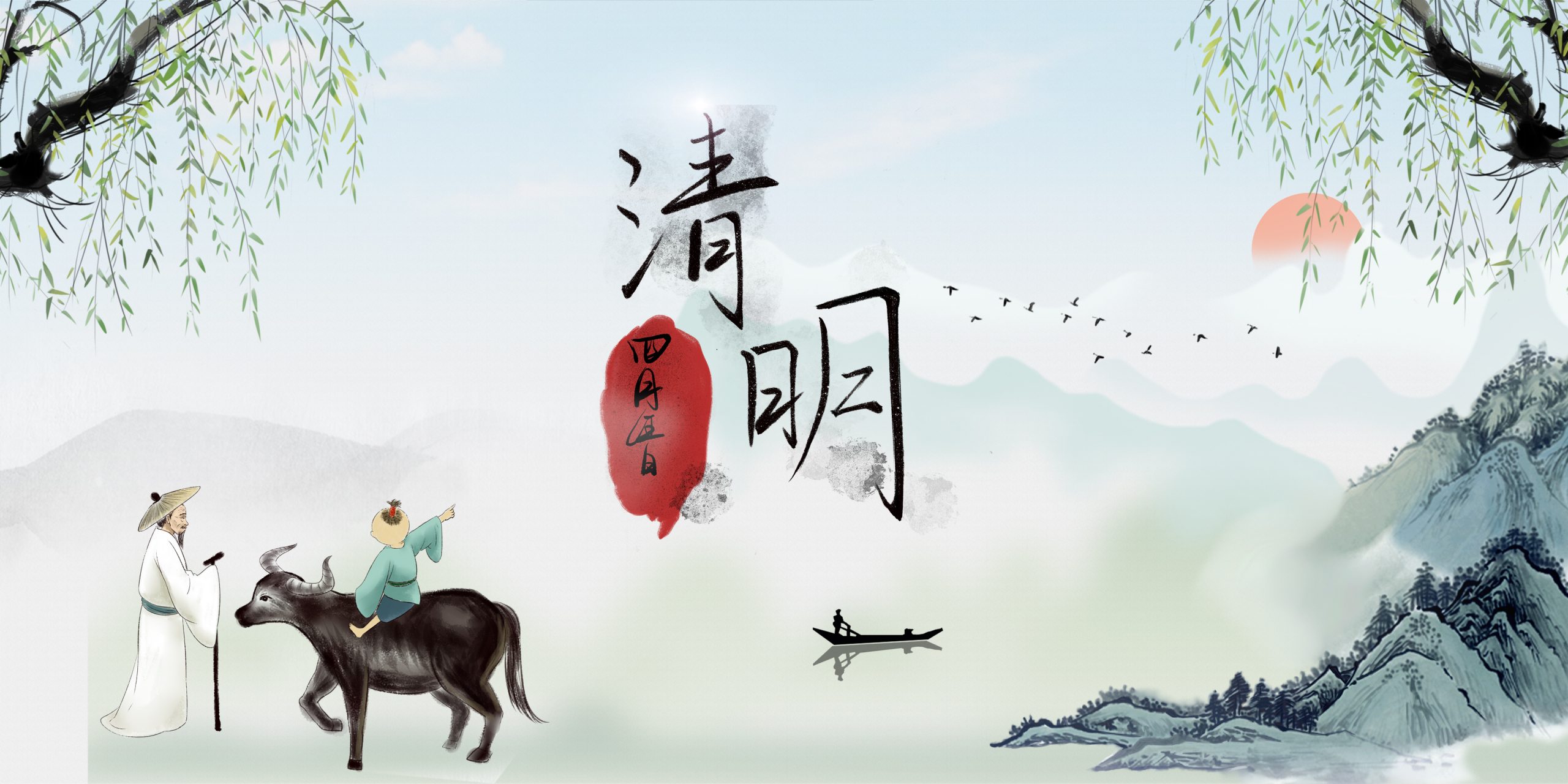Chinese Qingming Festival
Chinese Qingming Festival
What is Qingming festival?
The Qingming festival, also known as Tomb-Sweeping Day in English (sometimes also called Chinese Memorial Day or Ancestors’ Day). It is a traditional Chinese festival observed by the Han Chinese of mainland China, Taiwan, Hong Kong, Macau, Malaysia, Singapore, Indonesia and Thailand.
What is the time for Qingming festival?
It falls on the first day of the fifth solar term of the traditional Chinese lunisolar calendar.
This makes it the 15th day after the Spring Equinox, 春分either 4, 5 or 6 April in a given year. The Qingming Festival has been observed by the Chinese for over 2500 years. It became a public holiday in mainland China in 2008.

What people do for Qingming Festival?
During Qingming, Chinese families visit the tombs of their ancestors to clean the gravesites, pray to their ancestors and make ritual offerings.
Offerings would typically include traditional food dishes and the burning of joss sticks 香 and joss paper. 纸钱The holiday recognizes the traditional reverence 崇敬of one’s ancestors in Chinese culture.
The major custom for the occasion is the tomb-sweeping ceremony, namely, cleaning or sweeping the tombs of ancestors to pay homage to them. This custom is said to have lasted for 2500 years. People of family spread some new earth on their family grave (or graves) and clear away the weeds growing on it. Then they deposit offerings of food and wine in front of the tomb stone or at the altar with a stick of burning incense. Next, the members of the family begin to kowtow or bow and pray. Nowadays, to save land resources, the practice of burial in the ground has not been encouraged in most parts of China. Tomb-sweeping has gradually been given-way to a ceremony of cherishing the memory of the deceased folks.
The Qingming festival takes places at the time of blooming spring. The weather becomes warm. So aside from cherishing the memory of the deceased, people often take the opportunity to have trips to the suburbs to breathe the fresh air, enjoy the scenery of blooming flowers, fly kites and play on swings. It is the time to delight in the splendor of spring after a long time stay indoor during the cold winter.
In mainland China, the holiday is associated with the consumption of qingtuan. It is green dumplings made of glutinous rice and Chinese mugwort or barley grass. 艾蒿或大麦草
Panorama of Along the River During the Qingming Festival
The famous Qingming scroll is an ancient Chinese painting.
It portrays the scene of Kaifeng city, the capital of the Song Dynasty during a Qingming festival. This Famous painting of the Qingming Festival was originally painted by Zhang Zeduan (1085–1145) in 12th century. This painting depicts the scene of the Qingming festival of the capital of the northern Song Dynasty. As this 12th-century painting shows, the Qingming festival is an occasion not only for people to mourn their ancestors, but also for expressing their love of life and their gentle disposition.

Qingming in Chinese Literature
Qingming was frequently mentioned in Chinese literature.
Among these, the most famous one is probably Du Mu’s poem titled “Qingming”. Let us write the poem in both traditional Chinese and simplified Chinese marking with Pinyin and English translation as following:
清明時節雨紛紛
清明时节雨纷纷
qīng míng shí jié yǔ fēn fēn
Mizzling during Qingming.
路上行人欲斷魂
路上行人欲断魂
lù shàng xíng rén yù duàn hún
Howling desperately the pedestrians
借問酒家何處有
借问酒家何处有
jiè wèn jiǔ jiā hé chù yǒu
Please sir,where can i find a bar.
牧童遙指杏花村
牧童遥指杏花村
mù tóng yáo zhǐ xìng huā cūn
A herdsboy pointing to a village afar – the Apricot Flowers
Upon the clear-and-bright feast of spring,
the rain drizzle down in spray.
Pedestrians on countryside ways,
in gloom are pining away.
When asked “where a tavern fair for rest,
is hereabouts to be found”,
the shepherd boy the apricot bloom village,
doth point to afar and say,”
This well-known tang poem is a vivid description of the Qingming Festival.
